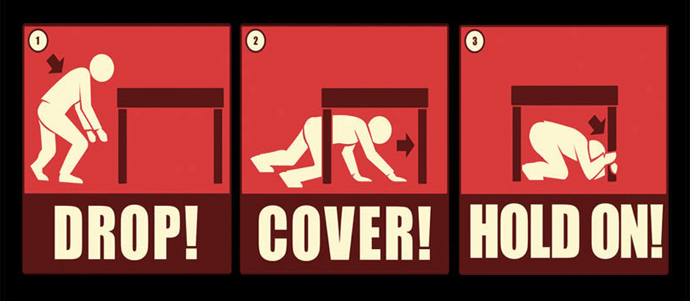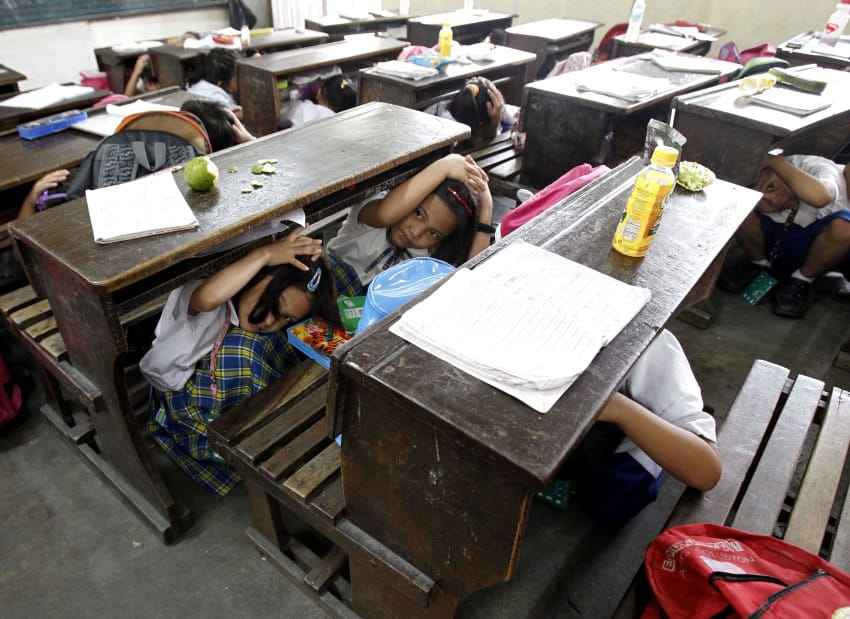LAHORE (Web Desk) – Do you know how to survive a major earthquake? According to Department of Conservation scientists California, it will be critical to have the right answer to that question.
However, according to department findings, many are certain that standing in a doorway during the shaking is a good idea. That’s false, unless you live in an unreinforced adode structure; otherwise, you’re more likely to be hurt by the door swinging wildly in a doorway or trampled by people trying to hurry outside if you’re in a public place.
Related: Google launches ‘Person Finder’ to help locate missing persons in Pakistan, Afghanistan earthquake
During an Earthquake
If you’re indoors, stay there. Get under — and hold onto –a desk or table, or stand against an interior wall. Stay clear of exterior walls, glass, heavy furniture, fireplaces and appliances. The kitchen is a particularly dangerous spot. If you’re in an office building, stay away from windows and outside walls and do not use the elevator.
If you’re outside, get into the open. Stay clear of buildings, power lines or anything else that could fall on you.
If you’re driving, move the car out of traffic and stop. Avoid parking under or on bridges or overpasses. Try to get clear of trees, light posts, signs and power lines. When you resume driving, watch out for road hazards.
If you’re in a mountainous area, beware of the potential for landslides. Likewise, if you’re near the ocean, be aware that tsunamis are associated with large earthquakes. Get to high ground.
If you’re in a crowded public place, avoid panicking and do not rush for the exit. Stay low and cover your head and neck with your hands and arms.

After an Earthquake
Check for fire or fire hazards. If you smell gas, shut off the main gas valve. If there’s evidence of damage to electrical wiring, shut off the power at the control box.
If the phone is working, only use it in case of emergency. Likewise, avoid driving if possible to keep the streets clear for emergency vehicles.
Be aware that items may fall out of cupboards or closets when the door is opened, and also that chimneys can be weakened and fall with a touch. Check for cracks and damage to the roof and foundation of your home.
Listen to the radio for important information and instructions. Remember that aftershocks, sometimes large enough to cause damage in their own right, generally follow large quakes.
If you leave home, leave a message telling friends and family your location.













